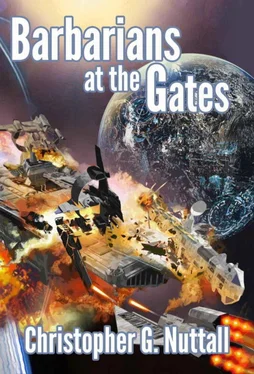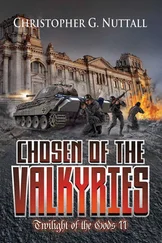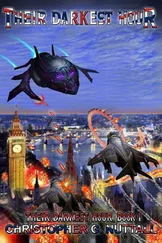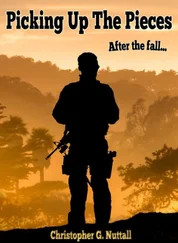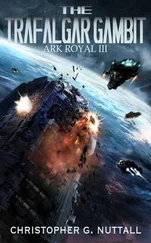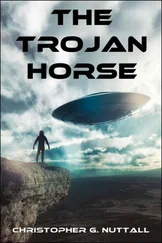“I’ve thought about your offer,” he said once they were alone. “I accept.”
“That’s good to hear,” Arunika said with a smile. Her smile grew wider as she held out her hand. “Welcome to the Brotherhood, admiral. I look forward to working with you.”
When on detached duty, separated from higher command, a captain will handle matters as he sees fit. Naturally, different captains have interpreted these regulations in different ways.
-Observations on Federation Navy Regulations, 4056
FNS Midway , The Hive System, 4095
“Anything to report?”
“Negative, captain,” the sensor officer said. “The system is as quiet and dark as the grave.”
“It is a grave,” Roman pointed out dryly. The Midway was floating in space, twelve light minutes from the single Asimov Point, cloaked and watching through every one of her passive sensors. “Maintain a steady watch and continue to deploy passive sensing platforms. Inform me once all of the platforms have been deployed.”
He looked up at the star chart in the holographic tank and smiled. A fluke of astrometry had placed the Marx System alarmingly close to The Hive System, only a mere four light years apart. In the days before the continuous displacement drive, they might as well have been in separate galaxies, but now even a commercial-drive ship could cross that distance in a week.
It said something about the taboo most people felt regarding The Hive that relatively few shipping companies had taken advantage of the opportunity when the continuous displacement drive had been licensed for commercial starships. Even now, after so long, the system was abandoned. Or at least there were no signs of any habitats or starships. If some remnant of The Hive still existed, they were very well concealed. They knew what would happen if they showed themselves.
Just before the Inheritance Wars had begun, back during the political ferment that culminated in the Battle of Spider Bite and the start of the first war, a scout ship had stumbled through the Asimov Point and surveyed the system. Finding nothing of particular interest, the settlement rights had been sold to a development corporation, which had started to ship in settlers, industrial nodes and all the other equipment intended to help get a new colony settled and self-sustainable. The Bainbridge Protocols had been taken seriously in that age and the development company hadn’t stinted, even with the wars weakening the economy. The Hive—it had been called Morning Glory at the time—should have been a success.
Instead, a little surprise the scouting parties had missed had destroyed the entire colony and threatened the entire Federation.
It was hardly unknown for a life-bearing world never to develop an intelligent race and the survey crew had almost been grateful, for an alien race would mean surrendering their settlement rights to the Federation Alien Development Agency. They hadn’t noticed how…orderly the planet’s small animals had been—the planet hadn’t developed any larger animals—nor how they tended to stay well away from the human settlers. The animals might have been unintelligent, but the creatures that used them were alarmingly smart. The Hivers—tiny parasites that shared a group mind and infested living beings, controlling them once they took up residence in their brains—slowly took over the entire colony, and then the star system. The colony’s low tech base helped; the infestation wasn’t easy to detect and was impossible to remove.
By the time The Hive started sending out infection parties to other worlds, they owned the entire system. It was too late to do anything for the infected, even with the most advanced Federation medical technology.
They’d overplayed their hand, fortunately, and they’d been discovered long before they could infect most of the Federation. The Federation Navy had sealed the Asimov Point—luckily, The Hive hadn’t had access to real warships—developed a nanotechnological counter to the alien infestation, and invaded the system. Once the pitifully small defense fleet had been brushed aside, The Hive—and every other world in the star system—had been bombarded with antimatter bombs. The entire star system had been sterilised. There were still rumors that some infected humans had escaped on a starship, somewhere in the void of interstellar space, but nothing had ever been proven. The Hive was dead.
Roman settled back in his command chair, waiting patiently. Once the survey of the system was complete, they would proceed to another system, and then another, until they returned to the rendezvous point. He wasn’t expecting trouble, but he’d done everything he could to prepare for it. Besides, it kept the crew on their toes.
How quickly things could change, he mused. As a younger officer, he’d resented the endless drills, but as a captain, he appreciated them. He could not afford to allow his crew to become complacent.
Absently, he glanced down at the reports from the probes they’d launched towards The Hive, an action that had sent shivers of fear down the spines of some of his crew. RockRats didn’t suffer from taboos (at least, not the same taboos) as planet-born spacers, but Roman had to admit that they might have a point. The Hive had given birth to a deadly threat, one that could have proven lethal if they’d managed to infect more star systems before being discovered, and one that touched on humanity’s worst nightmares. It was one thing for humans to collaborate with alien invaders, but quite another to face the prospect of losing all individuality and merging into a hive mind.
“Captain,” the communications officer said suddenly. “I’m picking up a distress beacon, bearing…”
Roman swung around in his command chair and scowled at the display. There hadn’t been anything there a moment ago, but that proved nothing. The problem with passive sensors was that they could only pick up objects that were actually emitting energy signatures. A starship that shut down all its drives and sensors would be effectively invisible, a needle in a haystack the size of a planet. And if it was emitting a distress signal…his mind raced, considering possibilities. No warlord, he was sure, would stoop to the level of using a distress beacon to lure in an unwary starship, but pirates had been known to do so. They were already dead if they fell into Federation hands, so what did they have to lose?
And if it was a real distress beacon, they had a moral duty to respond.
“Helm, set course to home in on the beacon,” he ordered. The distress beacon was nearly forty light-minutes away. Whatever had happened, he reminded himself, had taken place forty minutes ago. A battle between two starships would be very hard to detect at that range. “Keep us under cloak. I don’t want them seeing us if it is a trap.”
“Aye, sir,” the helmsman said.
Midway hummed slightly as she turned in space and set a new course towards the source of the distress signal. It would take over an hour to reach the beacon, by which time it might all be over. The Federation insisted that all starships—particularly civilian craft—carried lifepods and emergency shuttles, but The Hive was almost always deserted. There shouldn’t have been anyone to come to the rescue.
His XO’s face appeared in the small display.
“Kind of an odd coincidence,” Janine pointed out. “We get here, then something decides to happen.”
Roman had been having similar thoughts, especially due to the nature of travel through the Asimov Points. It was theoretically possible to see a cloaked ship just as it came out of the Asimov Point, but whoever observed it would have to be in exactly the right place at the right time to do so, and the odds were vanishingly small.
Читать дальше
